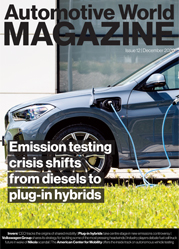Ranked as one of the best brands in the world, Tela sits comfortably alongside the tech giants Amazon, Netflix, Apple, Microsoft, etc and is undoubtably having its moment in the spotlight. Lofty global net-zero emissions goals and a growing consideration of sustainability and electric vehicles (EVs), spurred further by the pandemic, means Tesla has never been more powerful or relevant.
With a recent valuation of US$300bn+, making it the most valuable automaker in the world, it’s hard to imagine that this titan is still a mere teenager. Once just a small sportscar manufacturer with big dreams, it’s Elon Musk, the rebellious yet charismatic Chief Executive, who supercharged it to the global electric car and clean energy powerhouse that it is today. A company where a single tweet can affect the stock market; a marketing machine so mighty that the Tesla brand is quite literally transforming the car industry before our very eyes, shifting EV perception from ugly and undesirable to attractive and aspirational. Tesla is no longer the scrappy little challenger in the auto space. It’s not even a competitor; it’s a pioneer. A true leader. But with traditional carmakers hot on its tails with EV investment and offerings, the heat is on for Tesla, and whether it can maintain its market-leading position is yet to be determined.
Tesla’s recent Q3 results were unsurprising for a company that likes to “wow” at every opportunity. It recorded a profit for the fifth quarter in a row—not bad for an auto company in the midst of a global pandemic. Additions which were announced during the earnings call—Smart Summon and ‘autonomous mode relaunch’—consistently show its fans and investors that it is committed to continually improving its products and offerings. The company also reported a record-breaking quarter for vehicle deliveries, making it on track to be up 30% to 40% from last year—only a slight adjustment to the previously promised (pre-pandemic) 500,000+.
So, if Covid can’t squash Tesla’s spirit, what can?
To date, Tesla’s product success is down to its focus on premium EVs, a once empty gap in the market that is now closing at speed. Car companies including GM, BMW, Jaguar Land Rover, Mercedes-Benz and Volvo are all entering the luxury EV and hybrid market. And with multiple new models due to drop over the next 12 months as manufacturers work hard to meet robust emissions roles, 2021 could be an interesting year for Tesla. The premium EV market looks set to go from one dominant player to a multitude of choice, testament to what is an extremely fast-growing market. In coming months, we’ll see Tesla do battle with Porsche, Audi and Mercedes, and this is without even considering the likes of GM, Ford, Honda and Toyota who will be continuing to drive forward their own EV strategies at a more competitive price point.
With a recent valuation of US$300bn+, making it the most valuable automaker in the world, it’s hard to imagine that this titan is still a mere teenager
However, Musk likely relishes the competition. For it means his brand’s mission to “accelerate the world’s transition to sustainable energy” is being realised. Sales of EVs have accelerated to a record high this year. And for years, automakers have kept a close eye on Tesla as it absorbed all the risk in this new and unknown segment. But with all the risk comes all of the reward. Tesla has not only created a viable market for EVs, it’s owned it.
As the EV market expands, Tesla knows better than to restrict itself to the premium sector. Its latest price drop is less about a lull in demand (figures show that not to be true) but more about attracting an ever-wider range of brand fans who can spread the word about the innovation in Tesla products, pushing up those all-important delivery numbers. Tesla is also not focusing purely on EVs. Amplifying its Autopilot semi-autonomous tech, Tesla moves further into the self-driving car space—the “next big thing” in automotive.
So, whilst competitors may dig deep and splurge on evocative advertising campaigns, one thing they don’t have is Musk at the helm and the sheer brand power that brings. Tesla knows how to keep the world talking. By adding more recruits to the “Tesla Army” with each sale, tweet and outlandish PR stunt, it subsequently instills a sense of optimism in investors that will continue to drive the brand forward on its evolutionary journey to innovate, diversify, and change the auto and energy sectors for the better. You have to admire Musk’s starry-eyed vision. And who doesn’t love a hero/antihero on a quest to save the world?
However, Tesla’s lofty valuation isn’t based solely on figures. It’s a prediction that Tesla, with an abundance of innovation and determination, will be able to expand its monopoly on the EV market as interest and demand for clean energy continues to grow. Not only that, but Tesla has shown strides to diversify with a current portfolio that boasts not only EVs, but also battery energy storage and solar products.
Tesla has not only created a viable market for EVs, it’s owned it
It’s Musk’s Silicon Valley roots, maverick-like vision and his problem-solving entrepreneurship that make the Tesla brand that it is. Shunning traditional advertising spend, he curates highly speculated product unveilings that rival the likes of Apple and dominate the Twittersphere.
Whilst nobody has quite the brand power that Tesla has, it can’t be denied that competition is catching-up. But can it actually catch up? As other car manufacturers drive forward their own EV strategies, Tesla’s ambitious plans—Cybertruck, its own battery production, new European factories—will need to not only become more ambitious but be realised, and in record time. However, in the heady space of innovation Tesla must not forget its core. Using the full force of its brand, it must double down on performance, design, and affordability of EVs to make them accessible to the masses and unrivalled in terms of experience.
Transparency and approachability coupled with the charming swagger of a celebrity CEO will keep Tesla investors and fans interested. The brand will continue to tease and titillate from reveal to release, building excitement, momentum and making us feel as if we’re part of Tesla’s journey to change the world, regardless of whether we actually own a Tesla. And that’s why, regardless of the competition, Tesla will continue to play a pivotal role in driving EVs forward, whilst improving the quality, reliability and accessibility of the vehicles it produces.
Today, Tesla finds itself one mile ahead of the rest, thanks to its incomparable brand presence, and its resilience and ingenuity in the face of adversity. Long-term, who owns the EV market will all come down to product and price and the ability to play a key role in architecting and implementing EV infrastructure, but for now Tesla rules the road.
The opinions expressed here are those of the author and do not necessarily reflect the positions of Automotive World Ltd.
Alyssa Altman is Transportion Lead at Publicis Sapient
The Automotive World Comment column is open to automotive industry decision makers and influencers. If you would like to contribute a Comment article, please contact editorial@automotiveworld.com




